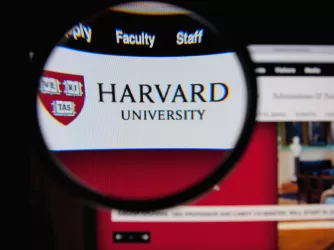Table of Contents
Delaware State rescinds NDAs, agrees to let students speak about campus safety

Benjamin Chambers / Delaware News Journal / USA TODAY NETWORK
Delaware State University President Tony Allen rescinded sweeping confidentiality agreements on students and promised to foster institutional transparency going forward.
Days after FIRE raised the alarm about Delaware State University imposing sweeping confidentiality agreements on students serving on campus safety committees, President Tony Allen rescinded the ban and promised to foster institutional transparency going forward. This welcome response restores DSU students’ right to freely speak on important campus safety issues.
On March 14, USA Today’s Kelly Powers broke the story on DSU’s requirement that students on the Safe Campus Coalition committees, tasked with assessing campus safety practices and policies, “keep absolutely confidential any and all information related to . . . [their] participation as a committee member.” Students feared university discipline for merely speaking to journalists about their committee work. Campus activism came at the price of their silence.

Delaware State agrees to campus safety initiative — but only if student participants sign a sweeping NDA
News
Students protesting the university’s response to crime on campus now have another worry — that they’ll get in trouble if they talk about it.
FIRE explained to DSU on March 15 that it can’t muzzle students seeking to spread the word about their campus activism. Legitimate privacy interests cannot justify such a broad ban on disclosing “any and all information related to” student committee work. We urged DSU to restore students’ expressive rights by rescinding the agreements.
DSU President Allen did just that: “On the confidentiality agreements, we went too far,” he said in a March 17 statement. He credited FIRE and others for bringing this issue to his attention and admirably took ownership for the mishap:
There are raw truths to be examined on all sides. Leaders make decisions, and therefore they also make mistakes. The leaders I admire own up to their mistakes and fix them. That’s who I aspire to be, and the example I want to set for our students and our community.
We’re pleased to see DSU own up to its error and promptly fix this violation of students’ First Amendment rights. Far too many universities double down on rights abuses rather than admit their actions stifled students’ expressive freedom. DSU’s principled response serves as a shining example of how universities can successfully address rights violations when brought to their attention.
Now, at DSU, conversations about campus safety can happen where they belong — in the sunlight.
FIRE defends the rights of students and faculty members — no matter their views — at public and private universities and colleges in the United States. If you are a student or a faculty member facing investigation or punishment for your speech, submit your case to FIRE today. If you’re a faculty member at a public college or university, call the Faculty Legal Defense Fund 24-hour hotline at 254-500-FLDF (3533). If you’re a college journalist facing censorship or a media law question, call the Student Press Freedom Initiative 24-hour hotline at 717-734-SPFI (7734).
Recent Articles
FIRE’s award-winning Newsdesk covers the free speech news you need to stay informed.

‘I hate freedom of opinion’ meme leads to sentencing in German court

Revoking Harvard’s tax-exempt status will threaten all nonprofits

Grandpa’s advice for the new wave of American censors


